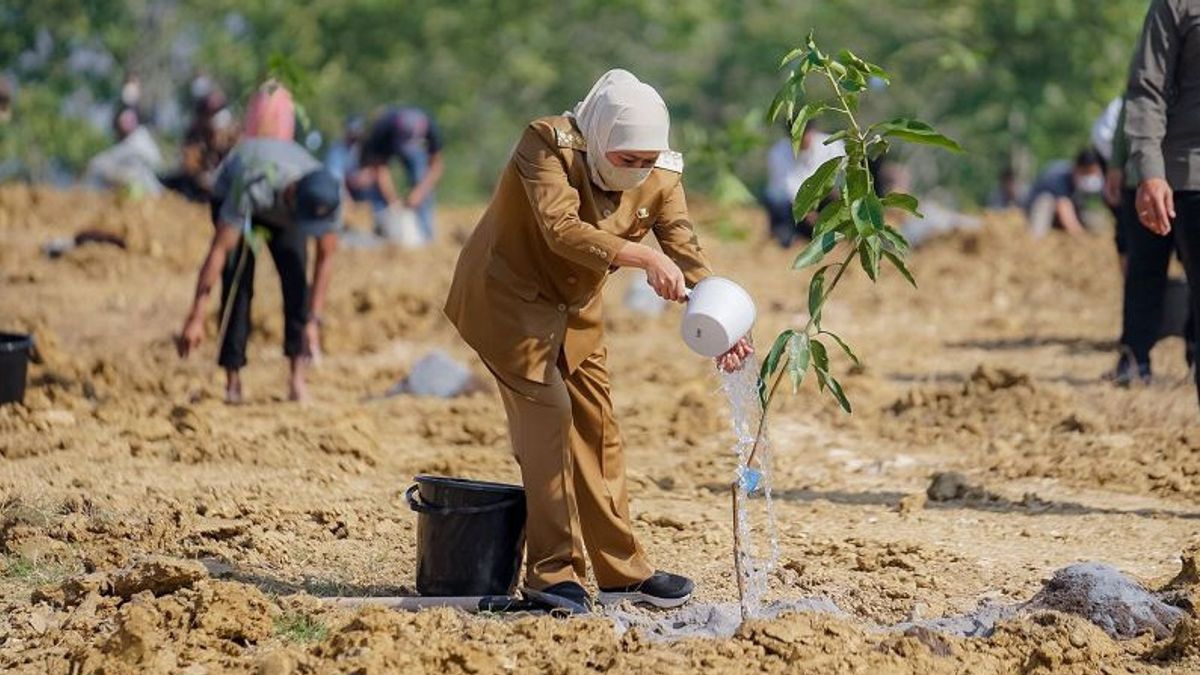SURABAYA - East Java Governor Khofifah Indar Parawansa believes the Mango Food Estate which was inaugurated by President Joko Widodo in Sukodono Village, Panceng District, Gresik Regency, will strengthen food security.
According to him, the food industry village for the mango fruit commodity is increasingly advancing the development of the horticultural sector in East Java from upstream to downstream.
"Of course, it is hoped that it will be able to encourage the production of mangoes and other horticultural products from Gresik and its surroundings so as to strengthen food security and the welfare of the people of East Java," said Khofifah on the sidelines of the inauguration while accompanying President Joko Widodo in Gresik.
Khofifah explained that the Mango Food Estate in Gresik is a long-term national program while maintaining food security that involves many policy makers from upstream to downstream.
That is, starting from infrastructure, agricultural tools and machinery, farmers or a combination of farmer groups, guarantor of agricultural commodities (offtakers), to modern industry.
The Mangga Food Estate in Gresik is the first large-scale integrated area to be developed in Indonesia, which includes four sub-districts in Gresik spread over 1,205 hectares of Dukun District, 1,506 hectares of Sidayu District, 2,410 hectares of Panceng District and 903 hectares of Ujungpangkah District.
Under the management of PT Galasari Gunung Sejahtera, the food estate will develop mango varieties of Malaba, Gadung-21, Arummanis and Garifta. In the marketing process, PT Galasari Gunung Sejahtera cooperates with a number of companies.
Until 2024, the total development of Mangga Food Estate in Gresik Regency is targeted to reach 6,024 hectares by involving 12,048 farmers.
According to Governor Khofifah, the involvement of offtakers in the Mango Food Estate plays an important role so that the yield of horticultural products from farmers can be more optimal.
"Currently, only about 50 percent of the mango harvest can enter the modern market. The other 50 percent are processed, such as juice, frozen fruit, lunkhead, ice cream, chips and cakes," he said.
"With the involvement of offtakers, horticultural products will have added value because the products grown are market needs," continued Khofifah.
The English, Chinese, Japanese, Arabic, and French versions are automatically generated by the AI. So there may still be inaccuracies in translating, please always see Indonesian as our main language. (system supported by DigitalSiber.id)













